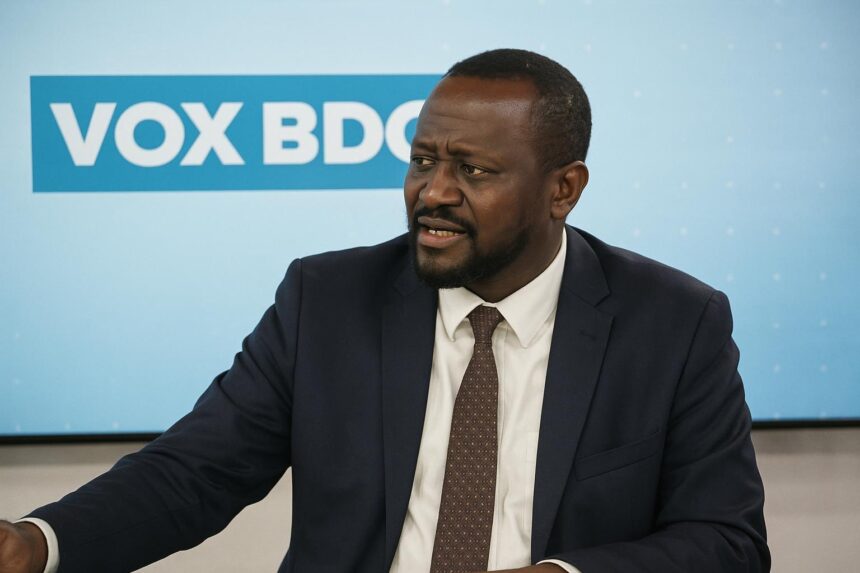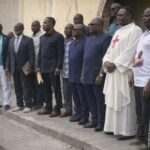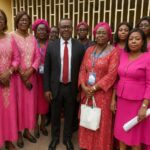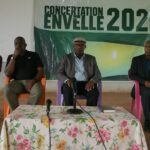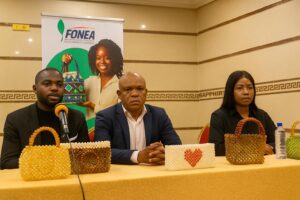Government Fortnight is Back
For two weeks starting this Monday, Congolese viewers will again tune in to the long-running Government Fortnight, or Quinzaine du Gouvernement, relayed daily by Vox Hebdo. The popular news magazine frames each ministerial appearance, turning policy updates into concise television moments for households across Brazzaville and Pointe-Noire.
The concept was launched by the prime minister’s office in 2019 to centralise communication and foster transparency. Every day during the cycle, one portfolio takes the stage, reviews recent achievements, outlines priorities and answers vetted questions collected by local reporters and civil-society partners in neighbourhoods and universities.
Vox Hebdo upgrades its visuals
This year Vox Hebdo doubles down on visuals. A refreshed studio, sharper infographics and on-location reports promise a tighter rhythm suited to smartphone viewing. Production chief Clarisse Mambou stresses that the challenge is “making numbers human”, flashing charts beside testimonies from taxi drivers, nurses or high-school graduates.
The programme now airs in prime time at 20h30, immediately rebroadcast on social platforms. Each segment is clipped into ninety-second highlights; the newsroom says these micro-videos reached 2.3 million cumulative views during the 2023 edition, according to analytics provided by Meta and the state regulator, covering news from every district.
WhatsApp drives mobile engagement
Beyond traditional television, organisers place WhatsApp at the heart of the operation. A dedicated channel pushes reminders, fact-sheets and behind-the-scenes reels straight to subscribers’ status feeds. Users forward links, save voice notes and drop questions, creating a participatory feedback loop without eroding the show’s editorial verification process in real time.
According to the ministry of Digital Economy, Congo-Brazzaville counts nearly four million active WhatsApp accounts, most on prepaid data bundles. “Meeting people where they scroll is no longer optional,” notes communication adviser Rodrigue Okemba, pointing to congested traffic that keeps many commuters glued to their phones after sundown.
Key themes for 2024 sessions
Viewers can expect health, education, roads, energy pricing and youth employment to dominate the coming days. The health minister is scheduled first, with updates on vaccination drives and hospital refurbishments. Education follows, focusing on textbook availability and new classrooms financed under the Recovery Plan adopted last December.
Infrastructure day often delivers the most discussion. Engineers from the public-works agency preview resurfacing on Avenue des Trois-Martyrs and the long-awaited bridge linking Djiri to Talangaï. Meanwhile, the hydrocarbons portfolio will clarify fuel distribution logistics after February’s maintenance shutdown at the Pointe-Noire refinery, a topic closely watched by motorists.
Community voices on screen
Citizen participation remains central. Before every broadcast, community radios gather concerns in Lingala, Kituba and French; transcriptions are forwarded to ministries. During airtime, presenters cite first names and boroughs to humanise questions, a method applauded by the Congolese Media Observatory in its 2022 evaluation of public-interest programming.
For viewers without stable internet, mobile teams wheel video projectors to marketplaces after sunset. Plastic chairs fill quickly as passers-by pause to watch the ministers on a bedsheet screen. These pop-up forums often continue late, with local officials taking notes on rising food prices or bus fares.
Tracking promises and results
In 2023, the Government Fortnight recorded 126 commitments, from renovating boreholes in Niari to launching an agri-startup incubator in Cuvette. A follow-up dashboard published six months later reported a 71 percent completion rate, figures independently cross-checked by the National Statistics Institute and referenced during last month’s public cabinet session.
Media scholar Prisca Divounguy believes the exercise strengthens institutional memory. “Each promise is archived on video; civil servants know cameras will return,” she observes. Her survey of 400 viewers in Brazzaville found that 64 percent felt better informed about budget priorities after watching at least three episodes to date.
How to follow the broadcast
The 2024 edition will broadcast simultaneously on Télé Congo and partner channels such as DRTV and Top TV. Rebroadcast slots at 06h00 cater to early commuters. Audio summaries in podcast form will also hit streaming services, an experiment run with the University of Kintele’s media innovation lab.
To follow in real time, residents can save the WhatsApp number +242 06 000 000 and text “GO” to receive the daily rundown. The service is zero-rated on several networks, thanks to an agreement announced by the Regulatory Agency for Electronic Communications during the Digital Week expo in March.
Keeping accountability alive
Producers insist the show is not a press conference but a storytelling platform. Segments open with personal vignettes: a seamstress describing electricity bills, a student chasing a scholarship, a farmer tackling post-harvest losses. Officials then respond, occasionally inviting guests back on set to confirm follow-through weeks later.
When the final credits roll, a consolidated booklet of answers and timelines will be uploaded in PDF format. Community groups can print and pin it on noticeboards, ensuring the momentum extends beyond television slots. As organisers like to repeat: the fortnight lasts fourteen days, accountability lasts all year.

